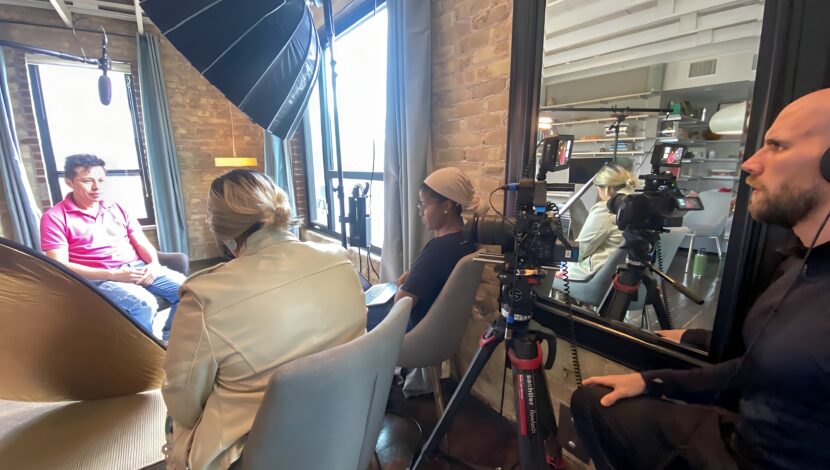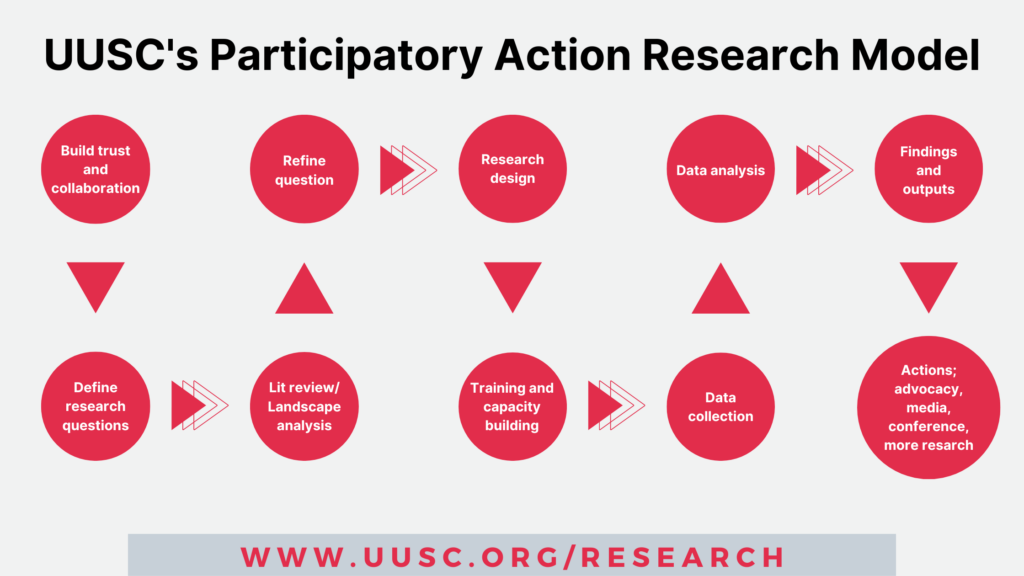The Unitarian Universalist Service Committee advances human rights through grassroots collaborations.
Research

Our Approach
UUSC’s research program is centered around a nonextractive research approach called “participatory action research” (PAR) and more specifically community-based participatory research (CBPR). This approach to research acknowledges that formal institutional research has been complicit in (indeed crucial to) the development of white supremacy and colonialism. Disrupting the power relationship between formal “researcher” and those being “studied” dismantles systems of oppression and affirms the dignity and expertise of all people. In short, participatory action research is research that holds to the adage: nothing about us without us.
Research for Action
The Action in PAR means, essentially, that the research is meant to be used for something, not just to contribute to the advancement of knowledge. Action will often look like:
- Media engagement
- Policy or legislative advocacy
- Legal advocacy
- Campaign building
- Strategic planning
- Offering new frameworks and practices
In a shift from less collaborative research modes, it is important to remember that the data, outputs, and the actions described above are in collaboration with partners and that “ownership” is collective. To the extent that that individual ownership must be defined, is often most appropriately held by community partners.
Our Process
Because PAR requires relationship-building, which takes time and produces meaningful collaborations, it is especially important that the research relationship be viewed
FIRST as a relationship, SECOND as a process, THIRD as specific products
We have found that by focusing on relationships and process, we not only build stronger research collaborations, but we increase and diversify the opportunities for tangible outputs that are targeted to partners’ needs.

Research Reports
We aim to produce research publications that support the work of our grassroots partners. Below are examples of work we have contributed to:
2023
2021
2020
- Extractivismo: Zonas de Sacrificio o Desarrollo (Spanish Webinar)
- The hidden connection between a US steel company and the controversial Los Pinares mine in Honduras
- La conexión escondida de una siderúrgica de EEUU con la polémica mina de Los Pinares en Honduras (Spanish)
- Disaster Justice Learning Circle (Webinar)
- The Work is All of Us: Undocumented and disabled
- Rights of Indigenous People in Addressing Climate-Forced Displacement
- La Crisis de Derechos Humanos del COVID-19 y las Prisiones en Honduras (Spanish Webinar)
2019
2018
2017
2016
2015
Image Credit: UUSC